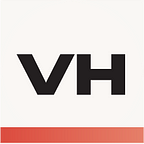Shanel Fields, Founder of MD Ally
If you think about it, the first employees at a company make up its founding team; it doesn’t necessarily need two co-founders. I built a founding team that worked really well together and helped launch MD Ally.
— Shanel Fields, Founder of MD Ally
Founder Visibility is an interview series that highlights founders that inspire us and shares how they found their firsts: co-founder, customer, capital, and confidence.
Shanel is the Founder of MD Ally — a platform that enables innovative EMS providers to optimize community-based medical services, establish strong patient-provider relationships, and ensure great clinical and financial outcomes for their non-emergency patients. As a passionate tech professional, Shanel explains her motivation behind starting her company and provides insight into leading her company as a solo founder and words of wisdom for all first-time founders. Read her story below.
Tell us a little bit about yourself and your journey leading up to starting your company.
My background is in healthcare and public safety technology. I started off leading teams for AT&T as my first role. I did that for quite a while before going over to a company called athenahealth, a healthcare technology company, where I led enterprise-level teams focused on national health systems, payors, and independent health entities. After that, I went to business school at Wharton and focused on healthcare (EMS) innovation. I started MD Ally after I learned that certain — particularly low-income and indigent — communities have higher rates of dead-on-arrivals. They also have less access to routine care that plagues them both clinically and financially. The cause of that is longer ambulance wait times and utilizing emergency care as their primary care. That decreases ambulance availability, overcrowds emergency rooms, and drives billions in excess cost. I’ve been entrepreneurial all my life, and I always knew I would start a company, so I launched MD Ally while I was at Wharton.
I spent the first year traveling around the country. I did several ride-alongs with first responders and dispatchers to look at the technical systems they were utilizing and create a way to integrate telehealth into their systems. What we do is we allow dispatchers to send those non-emergency callers over to telehealth.
I have a strong love and passion for public safety — my father was a volunteer EMT, my sister was a member of the military police, so this was a space that I’ve always loved and wanted to provide technology to help overcome pervasive challenges. There’s a lot of opportunity for innovation in public safety, and it’s an industry that can be fairly siloed, so through MD Ally, my goal is to build out technology for public safety systems that expands their current capabilities.
What were some of the challenges you’ve faced at the earliest points of your startup journey?
I guess the most obvious challenge was not having a dedicated co-founder. However, I did have folks early on that came to work with me and support the vision, as well as helped build out the company. They were really essential to getting the company to where it is today, even if they weren’t traditional “co-founders.”
If you think about it, the first employees at a company make up its founding team; it doesn’t necessarily need two co-founders. I built a founding team that worked really well together and helped launch MD Ally.
How did you find your first customer?
Cold outreach — you’ve just got to get out there! I reached out to many public safety systems and talked about what I was doing, which is essentially how I found my first customer.
It’s sort of the same concept as a founding team. You’ve got to find customers that will found the company with you, as well. We were fortunate to find really kindred spirits that were very innovative, forward-thinking, and truly aligned with our vision from the very beginning.
How did you come across your initial check?
Our first round was led by Red and Blue Ventures, which is a great Penn-Wharton venture fund. I met one of the partners, Brett Topche, in an entrepreneurship course I was taking at Wharton with Professor Laura Huang. At the end of the semester, our final exam was to pitch to investors, and he was on the panel that we were pitching to. I had been working on MD Ally from the very start of business school, so I pitched it. Afterwards, I went up to the panelists and got their cards, which was a great decision on my part. We built a relationship over time and met up for coffee every quarter! They were able to see us build the business over time and eventually offered to lead our round, which is how we got our first check and million in funding.
What is one piece of advice you would give to your younger self before starting your company?
Take more breaks, especially in the beginning when you’re a full-time business school student.
When you start off, you have a high level of energy and excitement, which eventually leads to working crazy hours. Other successful CEOs taught me that you need to think about creating an infrastructure that allows you to operate in a sustainable way because burnout is real and you have to avoid that. I’m grateful that I have.
Thank you for sharing your story with us, Shanel.
Visible Hands invests in underrepresented talent who strive to build their tech startups. If you know a founder or an individual who would benefit from our 14-week fellowship program, nominate them now.
Take our quiz to learn which type of Visible Hands founder you are.
